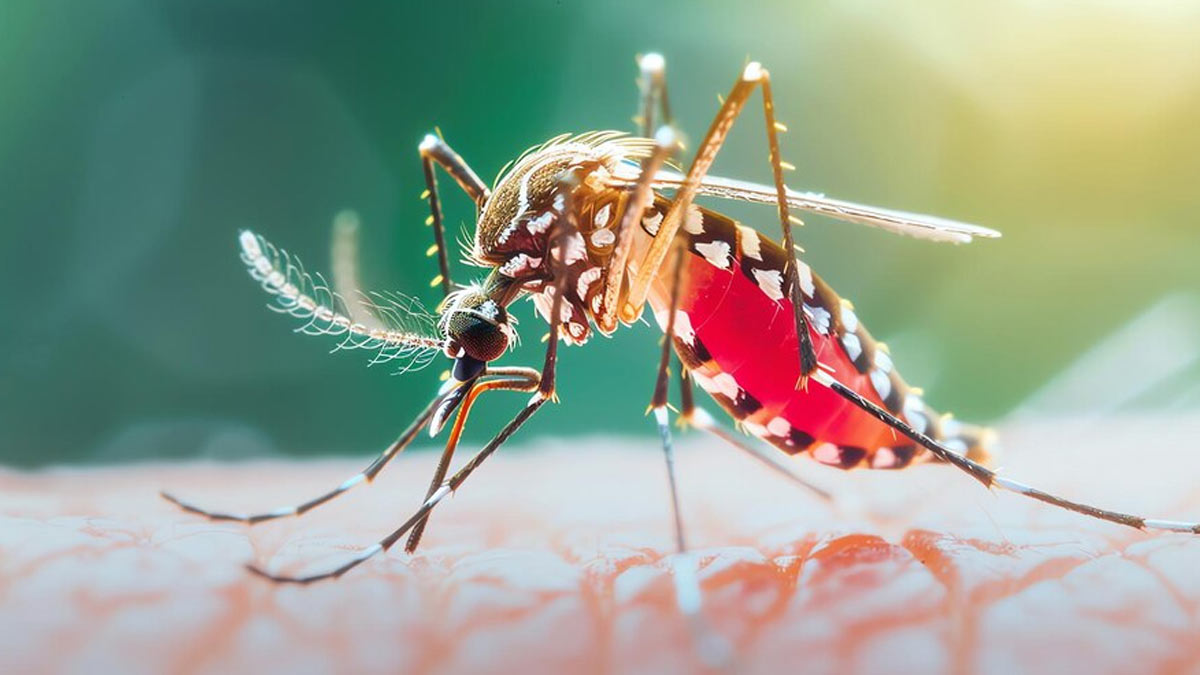
Dengue fever, primarily spread by Aedes mosquitoes, poses a major public health threat in numerous tropical and subtropical areas. While the disease is commonly associated with symptoms like fever, headache, rash, muscle pain, nausea, and abdominal discomfort, it can also have severe neurological impacts. We spoke to our expert Dr Divya Gopal, Consultant, Internal Medicine, Sir HN Reliance Foundation Hospital, Mumbai, who explained how dengue virus causes neurological complications.
Table of Content:-
Common Symptoms and Laboratory Findings
Dengue fever presents with a range of symptoms that can vary in severity. Common symptoms include:

- Fever: Sudden high fever is often the first symptom.
- Headache: Typically severe and located behind the eyes.
- Rash: A characteristic rash may appear a few days after the fever begins.
- Muscle and Joint Pain: Severe muscle and joint pains are common, leading to its nickname 'breakbone fever
- Nausea and Vomiting: These are frequent symptoms, sometimes accompanied by abdominal discomfort.
Laboratory tests often reveal elevated liver enzymes, indicating liver involvement, and a drop in White Blood Cell (WBC) and platelet counts. This drop in platelet count can increase the risk of bleeding, which is a hallmark of severe dengue.
Also Read: Dengue Fever During Pregnancy: Does It Cause Low Birth Weights In Newborns?
Neurological Complications

According to a 2024 study, up to 20% of dengue virus infections affect the brain. As the infections become more common, a growing number of individuals may be at risk for neurological complications. The multisystem dysfunction caused by the dengue virus, leading to encephalopathy, has been associated with Central Nervous System (CNS) problems.
Although neurological complications from dengue are rare, they can occur. Dr Gopal listed some of the symptoms including:
- Headache: Severe and persistent
- Altered Consciousness: Ranging from confusion to coma
- Irritability and Insomnia: Changes in behaviour and sleep patterns
- Seizures: These can be a sign of severe CNS involvement
Focal neurological deficits, often linked to encephalitis (inflammation of the brain), encephalopathy (a broad term for brain disease or malfunction), and stroke, are commonly observed during the acute phase.
According to a 2022 study, neurological manifestations of the dengue virus have been reported in numerous countries across all continents. Affected individuals range from as young as three months old to those aged 60 years. High fever, elevated hematocrit, low platelet count, skin rash, and liver dysfunction are independent risk factors for neurological complications related to dengue virus infection.
Also Read: Monsoon Fever vs Dengue: Expert Explains How To Distinguish Between The Two
Encephalitis, Myelitis, and Meningitis

Encephalitis, myelitis, and meningitis are notable neurological conditions associated with dengue fever. Meningitis, while particularly rare, occurs more frequently in children and presents symptoms similar to other viral meningitis cases.
“During the acute phase, complications like Dengue Shock Syndrome (DSS), brain oedema, cerebral anoxia, metabolic acidosis, electrolyte imbalances, vasculitis, and liver and kidney failure can lead to encephalopathy,” said Dr Gopal.
Encephalopathy and Acute Phase Complications
“The neurological effects of dengue fever highlight the need for prompt medical attention and comprehensive disease management. Early detection and supportive care are essential to mitigate severe complications. Public health initiatives focused on mosquito control and bite prevention are crucial to reducing dengue incidence and its serious neurological and health impact,” added Dr Gopal.
Importance of Prompt Medical Attention
The neurological effects of dengue fever highlight the need for prompt medical attention and comprehensive disease management. Early detection and supportive care are essential to mitigate severe complications. This involves close monitoring of neurological symptoms, maintaining hydration, managing pain and fever, and monitoring blood counts and liver function. In cases of severe dengue, hospitalisation may be required to provide intravenous fluids, blood transfusions, and other supportive treatments.
[Disclaimer: This article contains information provided by an expert and is for informational purposes only. Hence, we advise you to consult your own professional if you are dealing with any health issues to avoid complications.]
Also watch this video
How we keep this article up to date:
We work with experts and keep a close eye on the latest in health and wellness. Whenever there is a new research or helpful information, we update our articles with accurate and useful advice.
Current Version